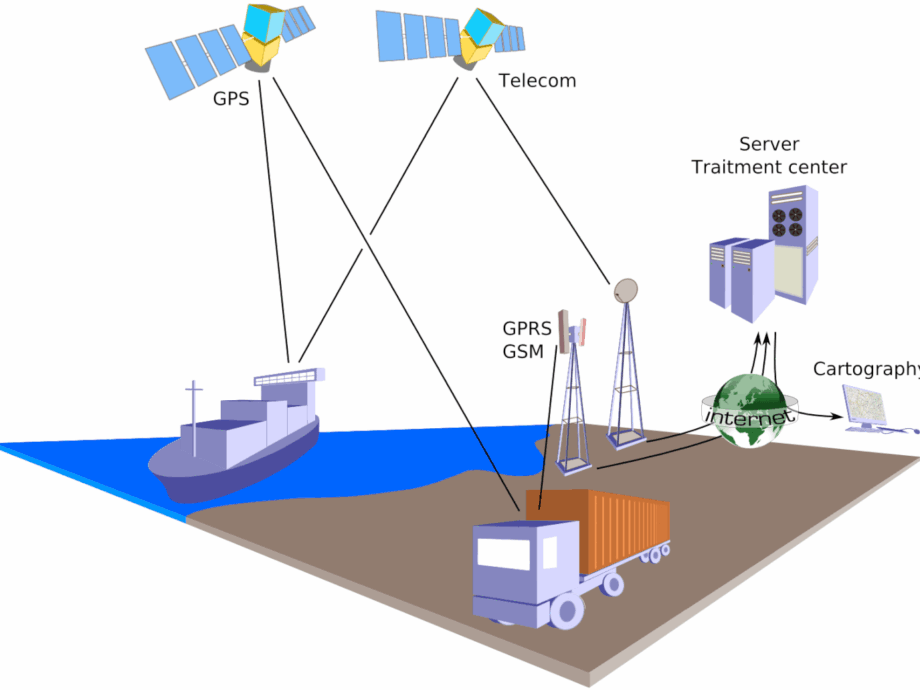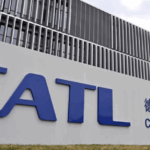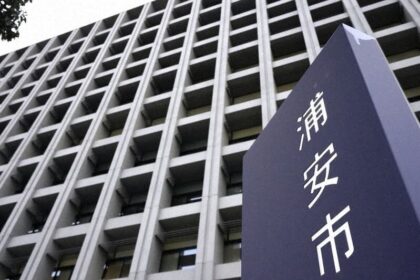Container Haulage in Malaysia: No Room for Fake GPS Devices
Recent concerns about the use of dummy or fake Global Positioning System (GPS) devices in Malaysia’s heavy commercial vehicles have sparked public debate about safety and regulatory compliance in the logistics sector. However, industry leaders and regulatory authorities have clarified that such practices do not affect the container haulage sector, which is among the most technologically advanced and tightly regulated segments of Malaysia’s commercial transport industry.
- Container Haulage in Malaysia: No Room for Fake GPS Devices
- How GPS Integration Ensures Compliance and Safety
- Comparing Container Haulage with Other Commercial Transport Sectors
- Technological Advancements in Malaysia’s Logistics Industry
- Government Initiatives and Regulatory Framework
- Challenges in Digitalization and Industry Transformation
- Safety, Sustainability, and the Road Ahead
- Broader Implications for Malaysia’s Economy and Global Trade
- In Summary
According to Mohamad Azuan Masud, secretary of the Association of Malaysian Hauliers, container hauliers operate in a highly system-integrated environment. To access port terminals, prime movers—specialized trucks that haul shipping containers—must have functioning GPS devices directly linked to port terminal systems. This integration makes it virtually impossible for hauliers to operate without an active, legitimate GPS device.
How GPS Integration Ensures Compliance and Safety
Container haulage in Malaysia is distinguished by its reliance on advanced technology and strict regulatory oversight. The GPS devices installed in prime movers are not merely for tracking; they are essential for operational access. Without a functioning GPS, a haulier cannot enter or exit port terminals, which are the critical nodes in Malaysia’s import-export supply chain.
Mohamad Azuan Masud emphasizes the sector’s commitment to best practices:
“We have long adopted best practices in the region, including GPS tracking, driver behaviour monitoring systems and soon, the advanced driver-assistance system to improve operational efficiency and safety.”
This technological integration is not just about compliance; it also enhances safety, efficiency, and transparency throughout the logistics chain. The close collaboration between hauliers, the Road Transport Department (JPJ), and the Land Public Transport Agency (Apad) ensures that the adoption of new technologies is both smooth and secure.
Comparing Container Haulage with Other Commercial Transport Sectors
While the container haulage sector is highly regulated, other segments of Malaysia’s commercial transport industry have faced scrutiny over the use of fake or non-functional GPS devices. For example, the Pan Malaysian Bus Operators Association, which oversees express and stage buses, has also confirmed that all its vehicles are equipped with serviceable GPS devices. Their movements are constantly monitored by Apad, and any bus expected to be out of service for an extended period must be reported to the authorities.
Datuk Ashfar Ali, president of the Pan Malaysian Bus Operators Association, states:
“There is no question of our buses operating without a GPS or having a ghost GPS installed to deceive the authorities. Even when a bus breaks down and is expected not to be in use for an extended period, we would have to notify Apad. Hence, it is not possible to operate without the device.”
This level of oversight is not universal across all commercial vehicle types, but it is particularly robust in the container haulage and express bus sectors due to the critical nature of their operations and the potential safety risks involved.
Technological Advancements in Malaysia’s Logistics Industry
Malaysia’s logistics sector has undergone significant digital transformation in recent years. The rise of digital logistics platforms, artificial intelligence (AI), and the Internet of Things (IoT) has revolutionized how shipping and haulage companies operate. These technologies provide real-time tracking, automated documentation, and enhanced transparency, making it increasingly difficult for non-compliant practices—such as the use of fake GPS devices—to go undetected.
According to industry analyses, digital platforms now offer:
- Real-time rate comparisons and instant booking capabilities
- Automated customs clearance and documentation
- End-to-end shipment tracking and visibility
- Integration with eCommerce platforms
These innovations not only improve efficiency but also raise the bar for regulatory compliance and customer service. The adoption of AI and machine learning further enables predictive analytics for route optimization, risk assessment, and demand forecasting, all of which contribute to a safer and more reliable logistics ecosystem.
Government Initiatives and Regulatory Framework
The Malaysian government has prioritized the modernization of the logistics sector through a series of policy initiatives, including the National Transport Policy 2019-2030 and the Logistics and Trade Facilitation Masterplan. These frameworks aim to enhance the country’s competitiveness as a regional logistics hub and ensure that industry players adopt best practices in technology and safety.
One notable example is the Digital Free Trade Zone, which positions Malaysia as a key transhipment hub for global eCommerce giants. The government also offers incentives for companies undertaking integrated logistics services, encouraging further investment in digital solutions and smart logistics infrastructure.
Despite these advancements, Malaysia’s logistics sector still faces challenges. The World Bank’s Logistics Performance Index 2018 ranked Malaysia 41st out of 160 countries, with timeliness identified as a key area for improvement. The government and industry stakeholders are working to address these issues through infrastructure upgrades, digitalization, and enhanced regulatory oversight.
Challenges in Digitalization and Industry Transformation
While the container haulage sector is a leader in technological adoption, the broader freight and logistics industry in Malaysia is still in the early stages of digital transformation. Academic studies highlight several challenges:
- Lack of skilled manpower and IT systems
- Absence of a unified data gateway
- Shortage of industry players and service efficiency
- Unclear alignment between digital strategies and business transformation
Despite these hurdles, there is growing interest in IoT, cloud computing, big data analytics, and blockchain technology. These tools are expected to drive further improvements in productivity, transparency, and customer service across the logistics sector.
Safety, Sustainability, and the Road Ahead
Safety remains a top priority for both industry players and regulators. The Association of Malaysian Hauliers has called for increased road maintenance near port areas, where heavy cargo traffic is concentrated, and for a review of the Weight Restriction Order to ensure long-term sustainability as cargo volumes rise. The association has also pledged full support for government measures aimed at enhancing safety standards and reducing accidents involving commercial vehicles.
Sustainability is another growing focus. Shipping and logistics companies are investing in fuel-efficient vehicles, eco-friendly packaging, and carbon-neutral shipping options. These efforts align with global trends and customer expectations for environmentally responsible business practices.
Broader Implications for Malaysia’s Economy and Global Trade
Malaysia’s position as a regional logistics hub is critical to its economic growth and integration into global supply chains. The container haulage sector’s commitment to technological advancement and regulatory compliance not only ensures operational integrity but also enhances the country’s reputation as a reliable partner in international trade.
The continued digitalization of logistics operations, combined with government support and industry collaboration, is expected to drive further improvements in efficiency, safety, and sustainability. As Malaysia’s internet economy grows and eCommerce becomes increasingly important, the logistics sector will play an even more vital role in supporting businesses and consumers alike.
In Summary
- The use of fake or dummy GPS devices is not an issue in Malaysia’s container haulage sector due to strict regulatory integration and technological oversight.
- Container hauliers must have functioning GPS devices linked to port terminal systems, making non-compliance virtually impossible.
- The sector is a leader in adopting advanced technologies such as GPS tracking, driver monitoring, and digital logistics platforms.
- Government policies and incentives support the digital transformation and modernization of Malaysia’s logistics industry.
- Challenges remain in digitalization, infrastructure, and talent development, but ongoing efforts aim to address these gaps.
- Safety and sustainability are key priorities, with industry players and regulators working together to enhance standards and reduce risks.
- Malaysia’s logistics sector is poised for continued growth, supporting the country’s role as a regional and global trade hub.












